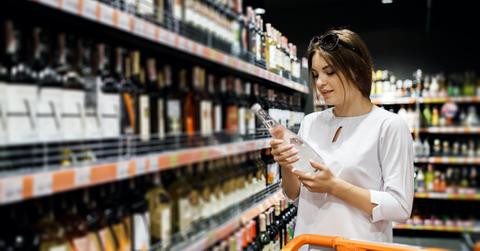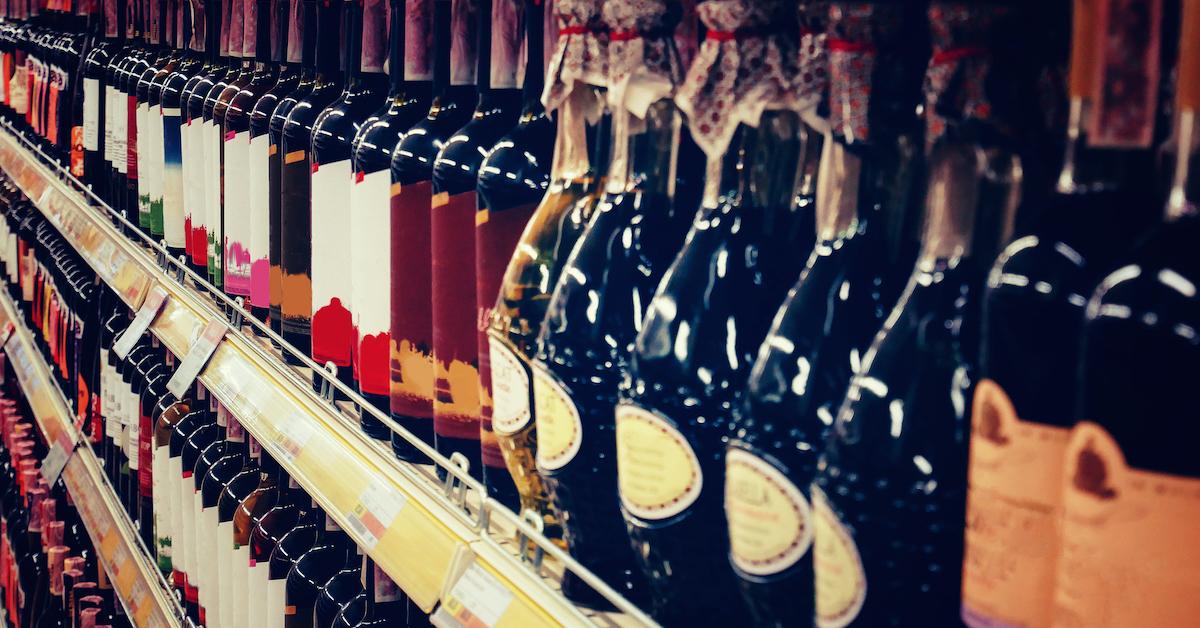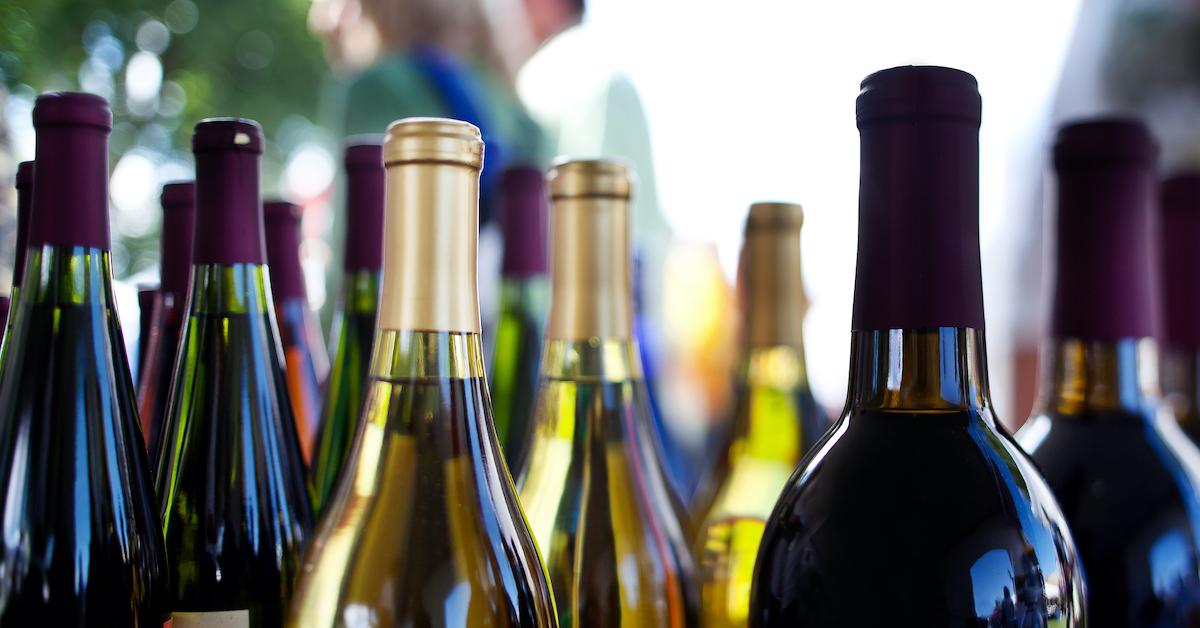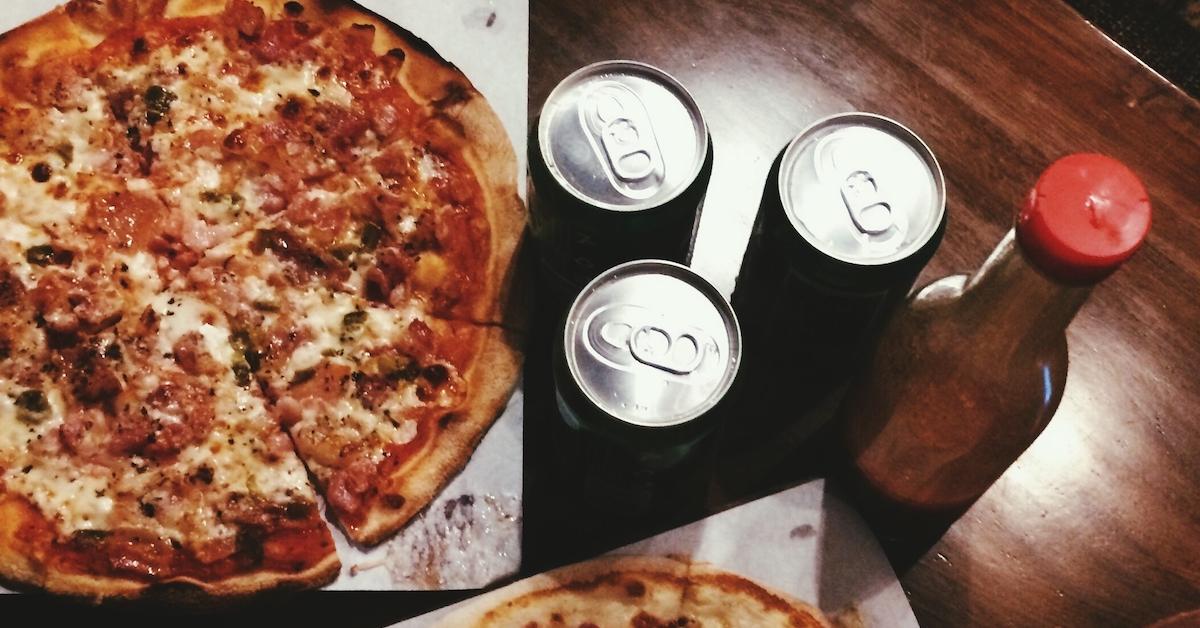Here's Which Type of Wine Packaging We Think Is the Most Sustainable
Updated Nov. 12 2020, 4:05 p.m. ET

In the last few years, wine connoisseurs have started investing time and money into making sure the beloved beverage's production process is sustainable from start to finish. The California Sustainable Winegrowing Alliance, for example, awards wineries for establishing "certified sustainable" growing practices, while wineries, bars, and tap rooms pride themselves on serving vegan wines. But one aspect of wine many don't consider is the packaging.
Which type of wine packaging is the most sustainable? From the classic glass wine bottle to the notoriously less sophisticated box to aluminum cans, there are so many different ways to consume the beloved beverage. That being said, Green Matters has analyzed how sustainable each one is, and which is most likely best for the environment.

Here's the rundown on glass wine bottles:
Although many believe glass to be more sustainable in the realm of packaging (or at least moreso than plastic) it certainly has its flaws. According to Decanter, melting sand to make glass, and melting glass to recycle it, both require exorbitant amounts of heat. Meanwhile, between the manufacturing, filling, and delivery processes of heavy glass bottles, glass requires several tons of transportation. In the end, glass emits an exorbitant amount of carbon dioxide into the atmosphere every year.
Decanter author, Andrew Jefford suggest that drinking from lighter packaging would be much greener, and that they would have a lower manufacturing environmental impact.
"Something like 33 billion glass bottles will be used for wine around the world in 2018 – and the grotesque carbon footprint of almost all of them is unnecessary," he writes.

Are cans more sustainable than glass?
A cans were only deemed acceptable vessels for wine pretty recently, with the introduction of well-respected brands such as Underwood and Dark Horse, and they come with both environmental advantages and disadvantages. Advantage-wise, according to Reuters, cans make for less ocean waste than plastic, as they're more biodegradable than other materials. They're about 68 percent recyclable, as opposed to other materials such as plastic, which are only 3 percent recyclable.
However, aluminum production is incredibly unsustainable. Manufacturing emits a decent amount of carbon into the atmosphere, and requires a ton of electricity. A new manufacturing process is definitely required for aluminum cans, if they actually want to be proven to be the greenest type of packaging for wine.

Many believe boxes to be the most sustainable.
When considering sustainable wine options, many think of boxed wine — it comes in bulk, and it's comprised of predominantly cardboard. As long as the bag inside the box, which contains the wine, is BPA free (such as the one used by Bota Box) wouldn't the cardboard box automatically be the most sustainable option of them all?
Some condemn the use of plastic in boxed wine, such as the bag and the spigot, which generally isn't disposed of properly. However, analyses from a life cycle analyst suggest that even with the environmental impact of the non-recyclable packaging components, boxed wines were more sustainable than glass bottles.
The consensus?
Out of all possible wine vessels, the cleanest and most sustainable packaging option for wine seems to be aluminum cans or plastic-lined boxes. While drinking wine from glass bottles is probably somewhat inevitable for most wine connoisseurs, think about doing Mother Earth a favor before Friday rolls around and consider the packaging before you buy.
To emit the issue of packaging, however, you can check your local bulk store, local bars, or wineries to see if buying wine in bulk is a possibility, because bringing your own reusable growler would obviously be the most eco-friendly option. It's also important to research the practices of said winery beforehand, as well as where it came from, to truly get a good idea of its environmental impact.
Anyway, enjoy your glass (or three) and cheers to a sustainable night in.